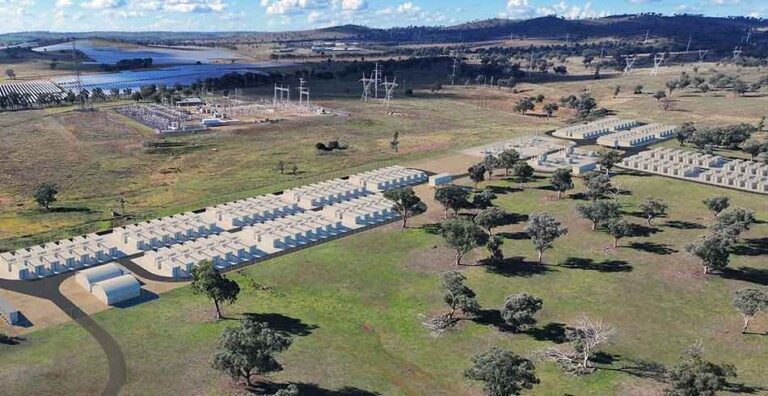Financing A 270MWh BESS In Belgium's Complex Merchant Market: A Practical Guide

Table of Contents
Understanding Belgium's Energy Market Landscape and its Impact on BESS Financing
Belgium's energy market, characterized by a transition to renewable energy sources and a complex merchant market structure, significantly influences the financing of BESS projects. Understanding this landscape is crucial for securing funding.
Regulatory Framework and Incentives
Belgium has ambitious renewable energy targets, driving investment in energy storage solutions like BESS. Several regulatory frameworks and incentives are in place to support this growth.
- Renewable Energy Targets: Belgium aims for a significant share of renewable energy in its electricity mix by [Insert Year], creating a strong demand for energy storage to manage intermittency.
- Government Subsidies and Tax Breaks: The Belgian government offers various subsidies, tax incentives, and investment grants specifically designed for renewable energy projects, including BESS. These incentives often depend on project size, location, and technology. Specific details can be found on the website of [Relevant Belgian Government Agency].
- Feed-in Tariffs: While perhaps not as prevalent as in some other countries, certain feed-in tariff schemes might indirectly benefit BESS projects by increasing the value of renewable energy generation.
- Capacity Mechanisms and Ancillary Services Markets: Participation in capacity markets and the provision of ancillary services (frequency regulation, peak shaving) offer valuable revenue streams for BESS, significantly enhancing their financial viability and attractiveness to investors. These markets are becoming increasingly important in Belgium's energy mix.
- Specific Belgian Regulations and Incentives:
- [Detail specific regulations and incentive programs, citing sources]
- [Detail specific tax breaks and their eligibility criteria]
- [Detail any regional variations in incentives]
The Merchant Market Model and Revenue Streams
Belgium’s merchant market is characterized by fluctuating electricity prices, creating both opportunities and challenges for BESS projects. Understanding these dynamics is crucial for accurate financial modeling and securing funding.
- Revenue Streams: A 270MWh BESS can generate revenue through various mechanisms:
- Frequency Regulation: Providing ancillary services to balance the electricity grid.
- Peak Shaving: Reducing peak demand charges by storing energy during off-peak hours and discharging during peak periods.
- Arbitrage: Buying energy at low prices and selling it at higher prices, capitalizing on price volatility.
- Capacity Provision: Participating in capacity markets and securing payments for providing grid stability.
- Price Volatility: The volatile nature of the Belgian electricity market requires sophisticated forecasting and risk management strategies. Historical price data analysis is critical.
- Successful BESS Projects: Examining the financial performance of similar BESS projects in comparable markets (e.g., other Western European countries with liberalized electricity markets) can provide valuable insights.
Securing Funding for a 270MWh BESS Project in Belgium
Securing financing for a large-scale BESS project involves a multifaceted approach, leveraging various debt and equity financing instruments.
Debt Financing Options
Traditional and innovative financing methods are available for BESS projects in Belgium.
- Traditional Bank Loans: Banks are increasingly familiar with financing renewable energy projects, but a strong business plan and detailed financial projections are essential.
- Green Bonds: These bonds specifically target environmentally friendly projects and may offer favorable interest rates.
- Export Credit Agencies: Agencies like [mention relevant agencies] can provide financing and risk mitigation tools for large-scale BESS deployments.
- Key Considerations for Debt Financing: Creditworthiness, project risk assessment, and a comprehensive financial model are paramount in securing debt financing.
Equity Financing Strategies
Attracting equity investors requires a compelling investment proposition.
- Private Equity and Venture Capital: These investors are actively seeking opportunities in the renewable energy sector, including energy storage.
- Strategic Investors: Partnering with energy companies or other strategic investors possessing sector-specific knowledge can enhance the project’s appeal.
- Crowdfunding or Public Offerings: While potentially challenging for a large-scale project, crowdfunding or public offerings can diversify funding sources.
- Importance of a Strong Business Plan: A well-structured business plan outlining the project’s technical feasibility, financial projections, and risk mitigation strategies is crucial in attracting equity investors.
Mitigating Risks and Ensuring Project Viability
Thorough risk assessment and mitigation strategies are crucial for successful BESS project financing.
Technological and Operational Risks
Battery technology presents both opportunities and challenges.
- Battery Technology Risks: Addressing risks related to battery lifespan, degradation, and performance is critical. Choosing reputable battery suppliers and incorporating appropriate warranties are essential.
- Operational Risks: Managing operational risks, including maintenance, grid integration, and cybersecurity, requires a well-defined operational plan and experienced personnel.
- Insurance Options: Comprehensive insurance policies can mitigate potential losses from unforeseen events.
Market and Regulatory Risks
The volatile nature of energy markets and regulatory changes require proactive risk management.
- Fluctuating Energy Prices: Hedging strategies, such as entering into power purchase agreements (PPAs), can mitigate price volatility risks.
- Regulatory Changes: Staying abreast of potential regulatory shifts and their impact on project profitability is essential.
- Power Purchase Agreements (PPAs): Securing long-term PPAs with off-takers can significantly reduce market risk and improve the project's bankability.
Financial Risk Management
Robust financial modeling is essential for attracting investors and securing financing.
- Financial Modeling and Forecasting: Developing detailed financial models that accurately forecast revenue streams, operating costs, and project profitability is crucial.
- Debt and Equity Financing Costs: Carefully managing financing costs is essential to maximizing project returns.
- Minimizing Project Risk: A well-defined risk management plan that addresses technological, operational, market, and regulatory risks is vital.
Conclusion
Financing a 270MWh BESS in Belgium’s merchant market requires careful planning and a comprehensive understanding of the regulatory landscape, revenue streams, and available financing options. By thoroughly assessing risks, developing a robust financial model, and leveraging available incentives, developers can successfully navigate the complexities and unlock the significant opportunities presented by this growing sector. This guide provides a foundation for navigating the intricacies of financing BESS in Belgium; remember to consult with financial and legal experts to tailor your strategy to your specific project needs. Start planning your BESS financing strategy in Belgium today!

Featured Posts
-
 Kanye West And Bianca Censori New Photos Surface From Spain Following Recent Absence
May 04, 2025
Kanye West And Bianca Censori New Photos Surface From Spain Following Recent Absence
May 04, 2025 -
 Hong Kong Defends Currency Peg With Us Dollar Purchases After Two Year Hiatus
May 04, 2025
Hong Kong Defends Currency Peg With Us Dollar Purchases After Two Year Hiatus
May 04, 2025 -
 Los Angeles Palisades Fire A List Of Celebrities Whose Homes Were Damaged Or Destroyed
May 04, 2025
Los Angeles Palisades Fire A List Of Celebrities Whose Homes Were Damaged Or Destroyed
May 04, 2025 -
 Russell Westbrooks Historic Nba Performance Nuggets Vs Warriors
May 04, 2025
Russell Westbrooks Historic Nba Performance Nuggets Vs Warriors
May 04, 2025 -
 Kanye West And Bianca Censoris Post Grammys Reconciliation Exclusive Details
May 04, 2025
Kanye West And Bianca Censoris Post Grammys Reconciliation Exclusive Details
May 04, 2025
